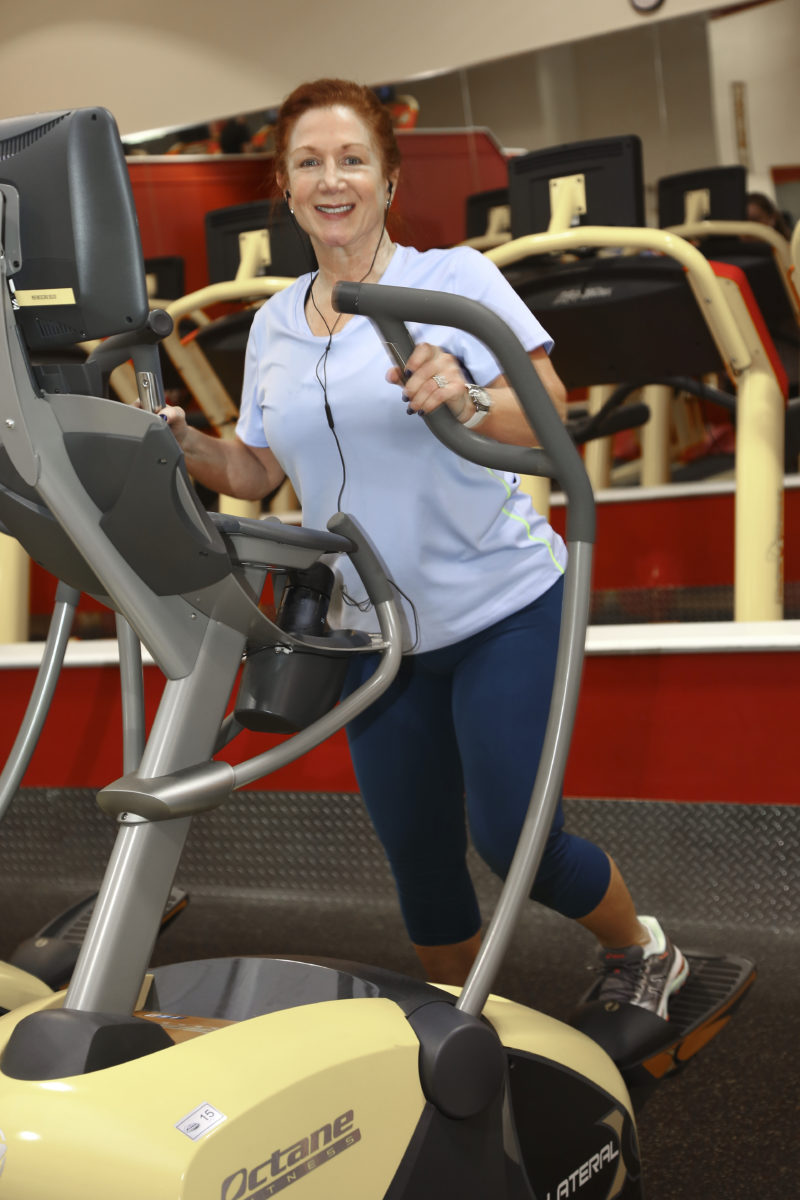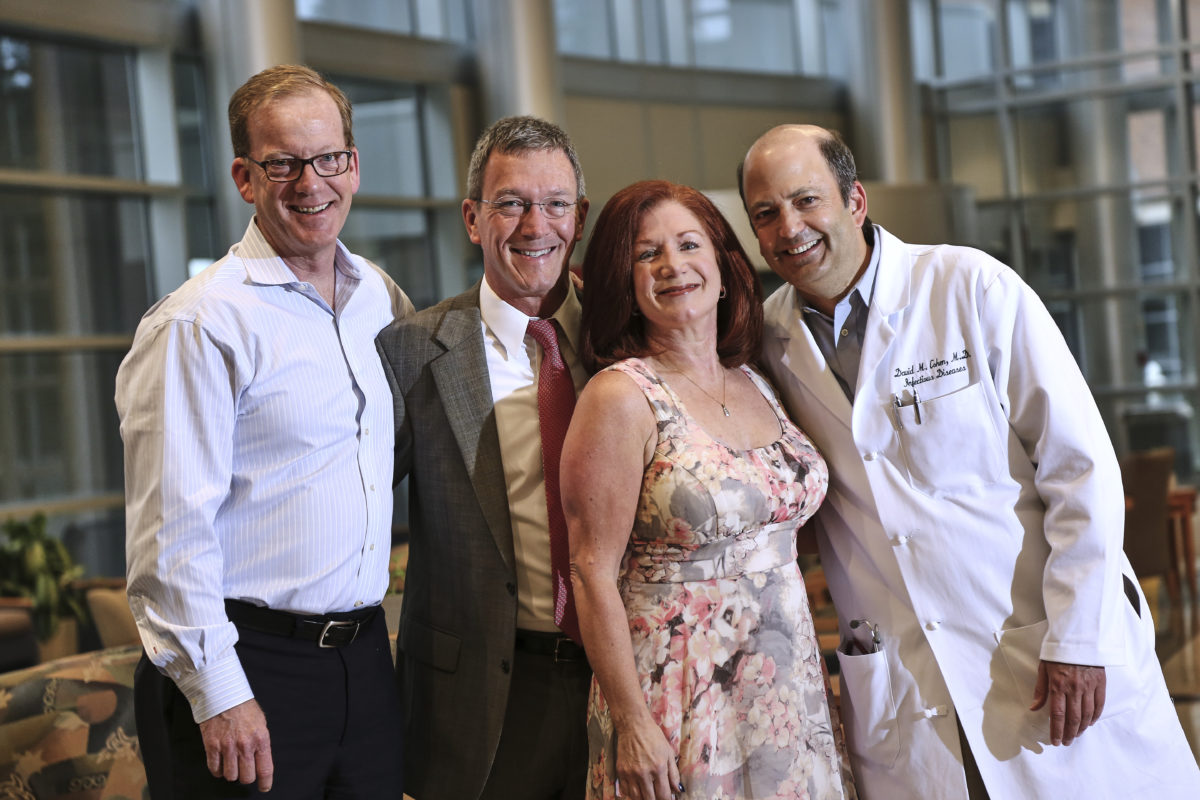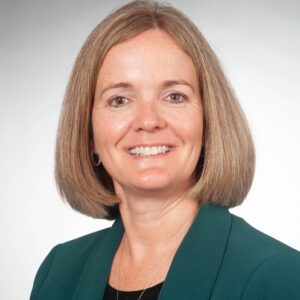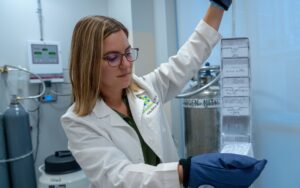Wende Yeager is a tough cookie, not easily sidelined.
The athletic, energetic 56-year-old has weathered mountain bike crashes, torn ligaments and more with humor and a shrug. So when she developed flu-like symptoms early in 2016, she decided to wait it out.
“I had severe headaches and back pain and was having trouble seeing out of my left eye — my depth perception was non-existent,” said Yeager. “I don’t like to give in to pain, but when I hit a parked car and didn’t even realize it, I knew it was time to have everything checked out. I went to see my primary care doctor and received a referral to see my optometrist.”
She was soon in the office of John M. Otto, O.D., in Christiana Care Eye Care. Dr. Otto found that her eye muscles were misaligned and her optic nerves grossly swollen and hemorrhagic. This very specific clinical situation indicated to him something was happening in Yeager’s skull that could affect her brain.
“The visit suddenly became very serious,” Dr. Otto said. “Wende and I talked extensively about her medical and physical activity histories in the few months leading up to her visit and even going back a bit further. It was important that I understood the symptoms she was having, as well as what she’d been up to before they started.”
Although Yeager expected to go home that day with a prescription for medication and order to rest, Dr. Otto instructed her otherwise.

“I decided the best way to know what was going on and to manage the potentially life-threatening situation was to send Wende to the Emergency Department,” he explained. “Within that day, I wanted imaging of her intracranial area to make sure there wasn’t a brain tumor or some bleeding process that could be an immediate concern.”
Yeager’s niece drove her straight to Christiana Hospital. In the Emergency Department, an MRI came back with normal results. Lacking any substantive information on what was causing the optic swelling, the Emergency Department staff admitted Yeager to a room.
In the hospital, her case initially confounded a growing team of clinicians led by Thomas Mueller, M.D., section chief of Neurology at Christiana Care. They ruled out different conditions, including meningitis and a spinal tumor, while Yeager’s condition continued with persistent and dangerous swelling of the optic nerve.
After following numerous clinical clues, imaging of the spinal cord identified a localized infection around her spine, possibly related to a spinal injection many months earlier.
Dr. Mueller consulted Christiana Care infectious disease specialist David M. Cohen, M.D., who prescribed antibiotics, to which Yeager immediately responded. As she recovered at home, her team continued to stay in touch with her and each other.
“Dr. Mueller and I talked every week about her progress and constantly monitored her,” said Dr. Cohen. “We also looped in her outpatient neurologist when needed.”
From start to finish, Yeager’s experience illustrates The Christiana Care Way in action. Drs. Otto, Mueller and Cohen partnered on a complex case to provide expert, compassionate care that their patient definitely valued. Their collaboration was key to delivering the right care at the right time.
“Personal interaction remains important,” Dr. Mueller said about collaboration across clinical specialties. “Direct face-to-face or phone discussion is as key as looking at each other’s notes. Nothing beats it for quality, effective patient care.”
For Yeager, who has recently started getting back to her regular workouts and on-the-move life, her care team’s partnership was nothing short of heroic.
“Each of these guys saved my life — there’s no doubt about it,” she said.



